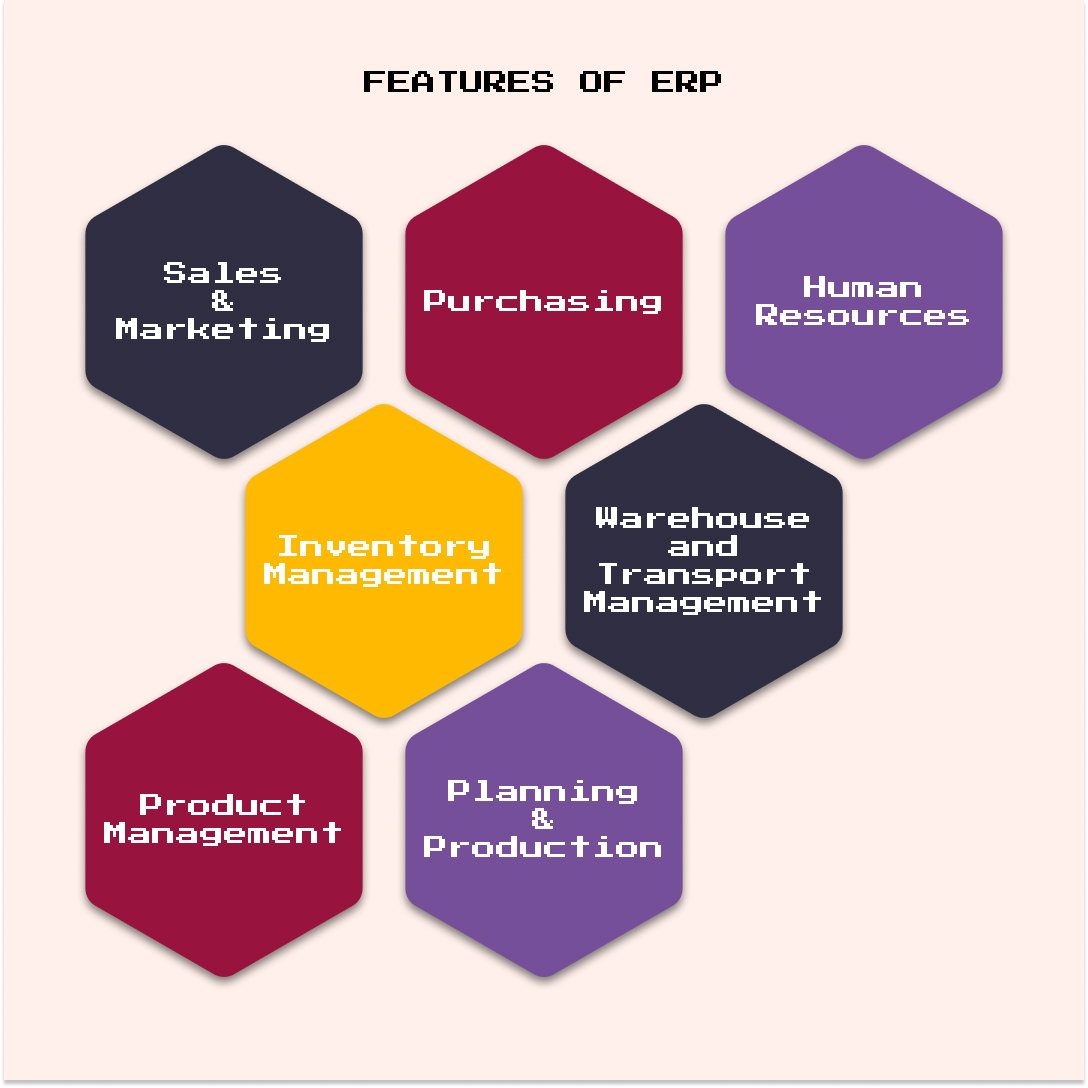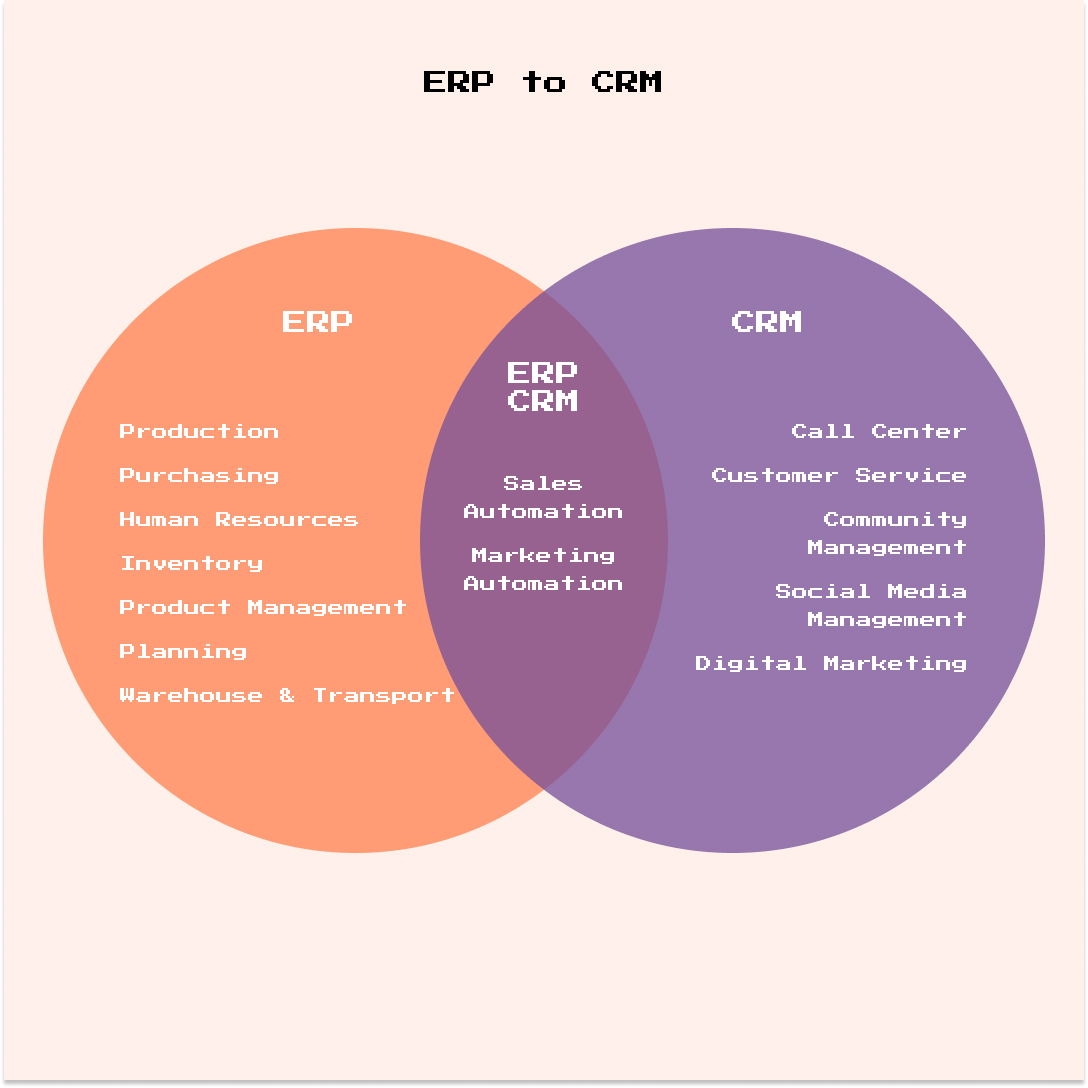Let’s Compare CRM to ERP
Let’s Compare CRM to ERP
Enterprise automation is a very important task for top management that have a strong will to develop their company. That’s why every businessman faces the necessity to implement control of all processes. The main problem is selecting between all the solutions that are available. This article will be useful to choose from two popular systems ERP and CRM. Both systems are able to collect contacts and all kinds of info about leads, both can have analytical functions, scheduling, etc. So, let’s compare CRM to ERP and find out all the differences.
ERP
The ERP term is the abbreviation for Enterprise Resource Planning. The software solution synchronizes the workflow of all the departments, collects, analyses, and keeps the company's database united. ERP creates the sole work space and connects all employees. Data is entered only once and becomes available for all the workers according to the level of access. The main purpose of the ERP system is to automate all business processes of the enterprise. That allows for reducing the volume of manual work and the number of hours that are spent in an inefficient way.
Features of ERP
- Sales & Marketing
- Purchasing
- Human Resources
- Inventory Management
- Warehouse and Transport Management
- Product Management
- Planning & Production

CRM
Customer Relationship Management (CRM) is a software that collects, stores, and manages all the information related to customers. Any business that is using a CRM system receives benefits like higher conversion rates and customer data organization, so these organizations can offer better customer service. In RedMonkey Tech we have already made a detailed article about CRMs, so instead of self-copying we suggest you read ‘What CRM Means’ in our blog.
Once we’ve described all the features of CRM and ERP systems let’s compare them and find out the key differences.
CRM & ERP. Key Differences

You need a CRM if the main workplace in your office is the sales department: if you need to improve sales efficiency, automate and better organize sales processes. Also, CRM would be a great fit for you and your company if your job with clients is based on calls, emails, meetings, etc and your main aim is to convert your clients to regular customers. So, CRM is more about sales, marketing, and working with clients as it improves efficiency, and sales and helps to deliver accurate customer data. Finally, CRM helps to improve customer service quality.
ERP would be your choice if you need to organize the workflow of the whole company. This solution is necessary if your workflow consists of warehouses, production, and transport tasks. Introducing ERP to companies like this makes every department work as a holistic mechanism. You should also keep in mind that ERP is a more global term than CRM as it includes several functions of CRM systems like sales and communication functions. So, the main difference: CRM is just a part of a bigger system called ERP.




